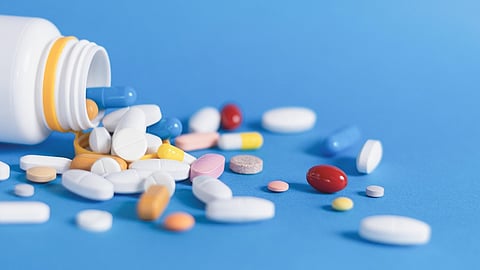Free Drugs Service Initiative
To further support patients seeking treatment at public healthcare facilities, the government has introduced the Free Drugs Service Initiative under the National Health Mission. Through this program, financial assistance is provided to states and union territories for the supply of essential medicines. The availability of medicines is structured as follows:
106 medicines at Sub-Health Centers
172 medicines at Primary Health Centers
300 medicines at Community Health Centers
318 medicines at Sub-District Hospitals
381 medicines at District Hospitals
Expansion of the PMBJP Product Basket:
Currently, the PMBJP scheme covers 2,047 medicines and 300 surgical items, medical consumables, and devices. These include medicines for major therapeutic areas such as cardiovascular diseases, cancer treatment, diabetes management, anti-infectives, anti-allergy drugs, gastrointestinal treatments, and nutraceuticals. The Department of Pharmaceuticals has set a target to expand this product range to 2,100 medicines and 310 surgical and medical products by March 31, 2025.
Monitoring and Enforcement of Drug Pricing:
The NPPA actively monitors the pricing of both scheduled and non-scheduled drugs through multiple sources, including:
Reports from State and Union Territory Price Monitoring Resource Units (PMRUs)
Inputs from State Drug Controllers (SDCs)
Market surveys and sample analysis
Data from market-based sources
Consumer complaints submitted through platforms such as the Pharma Jan Samadhan (PJS) portal, Centralized Public Grievance Redress and Monitoring System (CPGRAMS), and other reliable channels
Cases of overpricing or non-compliance are handled by NPPA under the provisions of DPCO, 2013.
Government Statement on Drug Pricing:
This information was shared by the Union Minister of State for Chemicals and Fertilizers, Anupriya Patel, in a written response to a question in the Rajya Sabha.
(Input from various sources)
(Rehash/Sai Sindhuja K/MSM)


